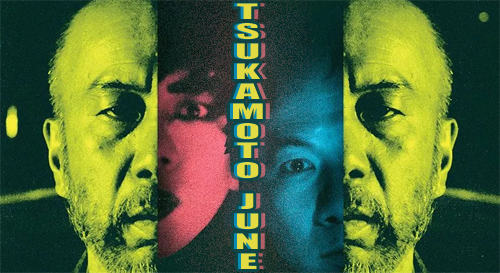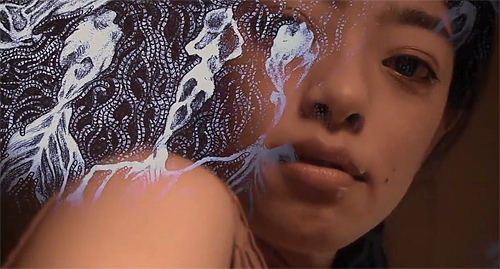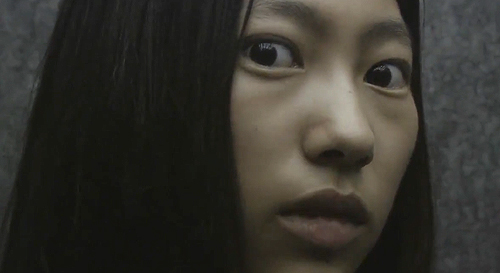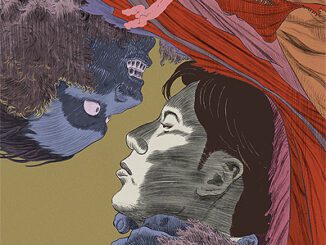Nightmare Detective 2 (2008)
Directed by: Shinya Tsukamoto
Written by: Hisakatsu Kuroki, Shinya Tsukamoto
Starring: Hanae Kan, Ryûhei Matsuda, Yui Miura

Welcome back to the Midnight Patrol, and welcome back Tsukamoto fans. You may recall this inane reference from last time in the discussion of Nightmare Detective part one. But this is the sequel so things are the same but different. How different? On the surface things seem to be very unchanged. There are more suicidal thoughts, more bad parents, and more ghostly visions. Thankfully this is where things pick up and a lot of the problems from last time around have been addressed. Shinya Tsukamoto himself isn’t in front of the camera which is a shame, though unsurprising. Meanwhile singer Hitomi also declined to return which… is less of a problem. Let’s delve into the other tortured mindscapes involved and see what other changes lie in wait.

The opening sequence is a familiar start as a family is disturbed by an otherworldly presence. For reasons that are very unclear the mother Itsuko (Miwako Ichikawa) becomes possessed by an uncontrollable fear response linked to her son and starts to have a breakdown. However, there’s more to this than meets the eye as the boy and his father Takio (Ken Mitsuishi) both share some kind of extra-sensory perception and become aware of a horde of ghostly schoolchildren passing the house. This sequence, involving grisly spectres and bizarre dog muppets, is pretty unsettling and outlandish to say the least. It’s also a sign of things changing for the better in a film that focuses both on this kind of family dynamic and the paranormal world.
The boy of course is the title character Kyoichi Kagenuma. Ten years later he dreams of this domestic turmoil (as well as other past traumas) which was only hinted in the previous instalment. This is the other improvement to the narrative: he’s actually a focal point for the story and there are no police thriller clichés to be found. One of the cops that know about his abilities gets a brief mention but they never show up. The rest of the tale sticks closer to the kind of eerie hauntings found elsewhere in Japanese cinema, but this means the overall mood is always consistent. The so-called detective is going to have to examine his past while trying to solve a case that he feels is very familiar. He’s just in no rush to help anyone and would rather wallow in self-loathing.
The call to action comes from schoolgirl Yukie (Yui Miura) who manages to get access to his apartment somehow. She’s of course troubled by nightmares and hopes that Kagenuma will help dispel them. Which isn’t probably such a good idea given his track record. She’s haunted by dreams of her fellow student Yuko (Hanae Kan) for reasons that become clear as things unfold. However, since this is her own fault for being a bully Kagenuma tells her to go and apologise to solve the problem. Which seems like sound advice and doesn’t involve a disturbed older man hanging out with a girl or entering her dreams. Unfortunately her friends are less open to this idea and soon things get out of hand; Yuko might just be a classmate but she has her own set of abilities.

The real strength of this sequel is the way it leans into horror by exploring what seems to be a curse Yuko placed on her bullies. It’s hardly groundbreaking but by ejecting the pretence that there’s a police investigation it has more time to build atmosphere. Chu Ishikawa’s weird chirping music starts to play as a classroom dream sequence plays out, signalling a diversion into Elm Street territory. Weird twisted faces on the living and the dead take it into a realm of horror that will be familiar to most genre fans. Practical and digital effects warp the dream world in ways that are interesting and unsettling in equal measure. Even a simple elevator ride becomes a suspense set piece as a lank-haired figure steps into the real world. The distinction between reality and fantasy can be fragmented and vague but it’s full of dread.
That connection to real life is also a main positive here as disturbing parental figures (later explored with a harsher outlook in Kotoko) present another source of horror. As Kagenuma’s mind-reading powers (and his past) catch up with him the story delves into themes of trauma as the line between supernatural power and mental collapse blurs. Some scenes can still be considered opaque but at the same time his journey from selfishness to responsibility to confront his inner demons is compelling. It might be an exaggeration to say he does real detective work or becomes a father figure to Yukie, or the stray children living in his building, but he’s apparently the only one they have. The conclusion may lack true reconciliation (and perhaps peaks fifteen minutes early) but it’s engaging in an emotional sense.
At least the film has something to say about paranoia and psychic abilities, or weak parents and generational abuse, without resorting to a shaky action filled climax. Even the way it uses art to show fear and hope goes a long way to summarise the whole experience through vibes alone. It’s a very drab movie (or perhaps sepia toned is a kinder description) but it has a consistent look that links nightmares of the past to current problems. In some cases the weirdness of the childhood dream sequences might be too odd, even for this director, and the sudden jolts of haunting activity might be too confusing. But while it’s not a perfect movie it’s certainly a step beyond what came before; a chiller with a pervasive sense of melancholy and flashes of real horror that make it worth checking out.
Rating: 









Further Reading:




Be the first to comment